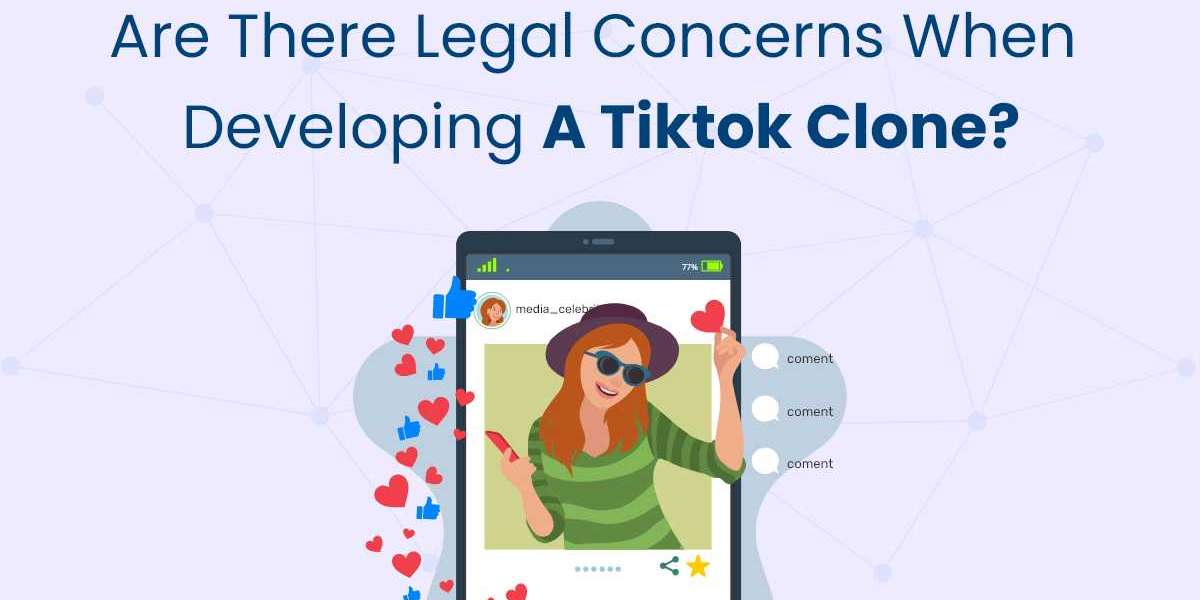Developing a TikTok clone app can be an exciting venture, but it also comes with legal considerations that developers must carefully navigate. Understanding and addressing these legal concerns is crucial to ensure compliance, protect intellectual property, and mitigate potential risks. Here’s a comprehensive guide to the legal aspects involved in developing a TikTok clone:
1. Intellectual Property Rights
One of the primary legal concerns when developing a TikTok clone app is intellectual property (IP) rights. TikTok, like any other major social media platform, holds various copyrights, trademarks, and patents related to its technology, brand identity, and user-generated content features. Developers must avoid infringing on these rights, which could lead to legal consequences such as lawsuits or takedown notices.
- Copyrights: Ensure that the app’s code, design elements, and content creation tools do not replicate TikTok’s copyrighted features, including its user interface, video editing tools, and algorithmic feeds.
- Trademarks: Avoid using names, logos, or branding elements that are similar to TikTok’s trademarks, as this could confuse users or imply endorsement or affiliation with TikTok.
2. Data Privacy and Security
Data privacy is a critical concern for any app that collects user data, including personal information and user-generated content. Developers must comply with data protection laws and regulations, such as the General Data Protection Regulation (GDPR) in Europe or the California Consumer Privacy Act (CCPA) in the United States. Key considerations include:
- User Consent: Obtain explicit consent from users before collecting their personal data or sharing it with third parties.
- Data Security: Implement robust security measures to protect user data from unauthorized access, breaches, or misuse.
- Content Moderation: Establish policies and tools for moderating user-generated content to prevent harmful or inappropriate content from circulating on the platform.
3. Compliance with App Store Policies
To distribute a TikTok clone app on major app stores like Apple App Store and Google Play Store, developers must adhere to their respective guidelines and policies. App stores have strict rules regarding content, functionality, user safety, and legal compliance. Key considerations include:
- Content Guidelines: Ensure that the app’s content—including videos, comments, and user interactions—complies with the app store’s policies on nudity, violence, hate speech, and other prohibited content.
- Monetization Policies: Follow guidelines for in-app purchases, subscriptions, advertising, and virtual goods sales to avoid rejection or removal from the app store.
4. Regulatory Compliance
Depending on your app’s target market and geographic location, you may need to comply with additional regulatory requirements, such as:
- Telecommunications Regulations: Compliance with regulations governing telecommunications services, especially if your app involves live streaming or real-time communication features.
- Advertising Standards: Adherence to advertising regulations and guidelines, including transparency in sponsored content and endorsements.
- Consumer Protection Laws: Ensure transparency in pricing, terms of service, and user rights under consumer protection laws.
5. Legal Agreements and Terms of Service
Developers should draft comprehensive legal agreements and terms of service (ToS) that govern users’ use of the TikTok clone app. These documents should address:
- User Rights and Responsibilities: Outline user rights to content ownership, privacy protections, and acceptable use policies.
- Limitation of Liability: Define the app’s limitations of liability in case of service disruptions, data breaches, or disputes between users.
- Dispute Resolution: Specify mechanisms for resolving legal disputes, including jurisdiction and arbitration clauses.
Conclusion
Developing a TikTok clone app presents exciting opportunities but also entails legal responsibilities and risks. By addressing intellectual property rights, data privacy, compliance with app store policies, regulatory requirements, and drafting comprehensive legal agreements, developers can mitigate legal risks and build a compliant and trustworthy platform. Consulting with legal professionals specializing in technology and digital media can provide invaluable guidance and ensure that your TikTok clone app operates within legal boundaries while offering a compelling user experience. Prioritize legal compliance from the outset to foster trust among users and stakeholders and pave the way for long-term success in the competitive social media landscape.







